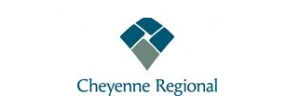
CRMC 4-17-17
Cheyenne Regional Medical Center will celebrate the official launch of its first-ever Human Milk Donation and Outreach Center on April 20 from 10:30 to 11 a.m. in the hospital’s main lobby, 214 East 23rd St. The kickoff will include a booth with information about the center and how local mothers can either become donors or can access human donor milk if their babies are in need.
CRMC’s new center is part of the Mothers’ Milk Bank, an Arvada, CO-based nonprofit program benefiting fragile babies nationwide. CRMC is opening its own outreach center as part of the hospital’s ongoing efforts to ensure that a safe and reliable source of human donor milk is available for local babies in need.
“Mothers who are still breastfeeding now have the opportunity to donate their excess milk to our center,” said Lori Boussuge, a registered nurse and lactation consultant at CRMC.
CRMC has offered human donor milk from the Mothers’ Milk Bank since 2015, but this is the first time that CRMC has been authorized to collect and transport milk from local donors.
“The American Academy of Pediatrics has recommended that human donor milk be the first choice when the mother’s own milk is not available,” Boussuge said. “It is now considered a best practice in healthcare to provide human donor milk for babies who need it.”
Boussuge also said that many local breastfeeding mothers have asked about donating to the Mothers’ Milk Bank. “These moms want to help those babies in our community who need supplementation. They also consider the milk bank to be a safety net for moms who cannot provide their own breast milk but who want to offer the benefits of human milk to their babies.”
To help ensure a safe product, a prospective milk donor must undergo a blood test and health screening, have a medical release form signed by the mother’s and the baby’s physicians and be willing to donate a minimum of 150 ounces of milk.
The Mothers’ Milk Bank dispenses more than 500,000 ounces of human donor milk to babies in more than 115 U.S. cities each year. It also provides more milk to neonatal intensive care units than any other nonprofit milk bank in North America, with about 85 percent of the donated milk being sent to hospitals for preterm and sick babies.
“Sometimes the mothers of these fragile babies are not able to provide breast milk, for a variety of reasons,” Boussuge said. “For these moms to have access to a safe supply of human donor milk, to ensure their babies receive the many nutritional benefits of human milk, can be a real blessing.”
Local donor milk will be stored at CRMC in a freezer provided by the hospital’s volunteer program. CRMC will also be in charge of transporting donated milk to the milk bank’s Colorado-based facility, where the milk will be processed according to the guidelines of the Human Milk Banking Association of North America. This includes pasteurizing the milk to kill potential viruses and bacteria.
“The pasteurization process removes any impurities, while still retaining about 95 percent of the nutrients and other benefits that come from human milk,” Boussuge said.
“It is our mission to offer the very best care to the babies and mothers of our community, and being able to provide human donor milk in partnership with the Mothers’ Milk Bank aligns perfectly with that mission,” Boussuge said.
For more information about CRMC’s Human Milk Donation and Outreach Center, call 307-633-7567. Information about the Mothers’ Milk Bank is also available at call http://rmchildren.org/mothers-milk-bank/



